The USA is the preeminent force in men’s Olympic basketball. It has won the gold medal on 14 occasions and frequently assembles some of the sport’s biggest stars on the international stage.
So when a new upstart on the block, fresh off a captivating performance at the FIBA World Cup in 2023, pushed LeBron James and co. all the way to the final buzzer in an Olympic warmup game, the basketball world took notice.
South Sudan, the world’s newest country, captured the hearts of spectators at the World Cup en route to a 17th place finish out of 32 teams. While that might not appear to be all that impressive at first glance, the Bright Stars finished top of the pool of teams that did not advance to the knockout stages and left the competition with a winning 3-2 record.
As the best-placed African team, the result secured the squad a spot at the Olympics for the very first time in its history.
Not bad for a country that has only officially existed for 13 years and has no indoor basketball facilities.
Among those making their national team debuts at the tournament was Wenyen Gabriel, who’s had multiple stints in the NBA for the likes of the Los Angles Lakers, Los Angeles Clippers and the New Orleans Pelicans.
Like multiple others on the Olympic roster, Gabriel is a refugee. He was forced to leave South Sudan as a young child, escaping the Second Sudanese Civil War. He and his family moved to Cairo two weeks after he was born before eventually arriving in the United States as refugees two years later.
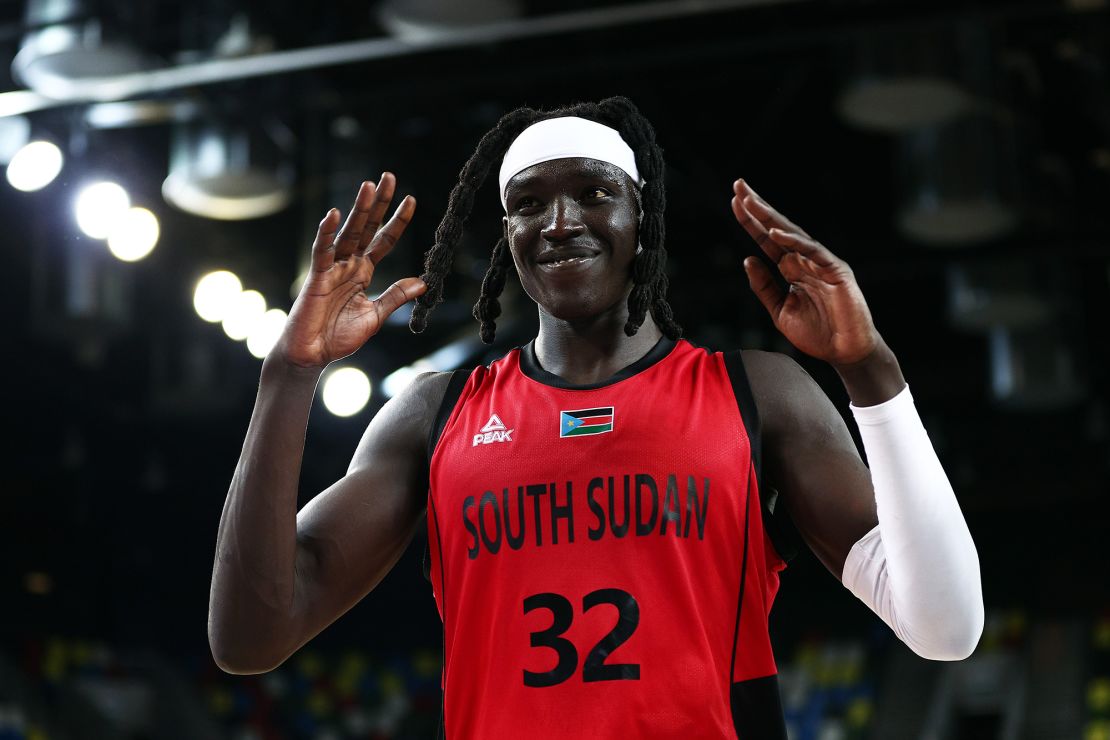
“Growing up, at first we didn’t have a country, you know?” Gabriel told CNN Sport. “It was just Sudan and we didn’t have South Sudan.”
Gabriel explained that he was unsure whether his nation would ever have a basketball team so when the opportunity arrived, he jumped at it.
“Knowing that, there’s a bunch of kids, a bunch of youth, that are from South Sudan that look up to us, that are inspired by what we do, that think that maybe they can make it next – for me to go represent the country, be one of the first group is just an honor to me,” he said.
Sporting roots
After decades of civil war, South Sudan gained independence from Sudan in 2011 following a referendum, making it the world’s newest widely recognized state.
The nation descended into a civil war of its own shortly after, with the war officially ending in 2018 – though violence persists to this day. It is listed as one of the least developed countries in the world by the United Nations.
Before becoming an official state, and well before bursting on to the international stage, the country already possessed some NBA pedigree. Manute Bol, one of the tallest players in NBA history at 7 foot 7 inches, gained a reputation as one of the league’s elite shot blockers between 1985 and 1995.
Luol Deng is a two-time All-Star who was born in what is now South Sudan, arriving in London – via Egypt – as a refugee, before moving to the US for his professional career. He now serves as the president of South Sudan’s basketball federation.
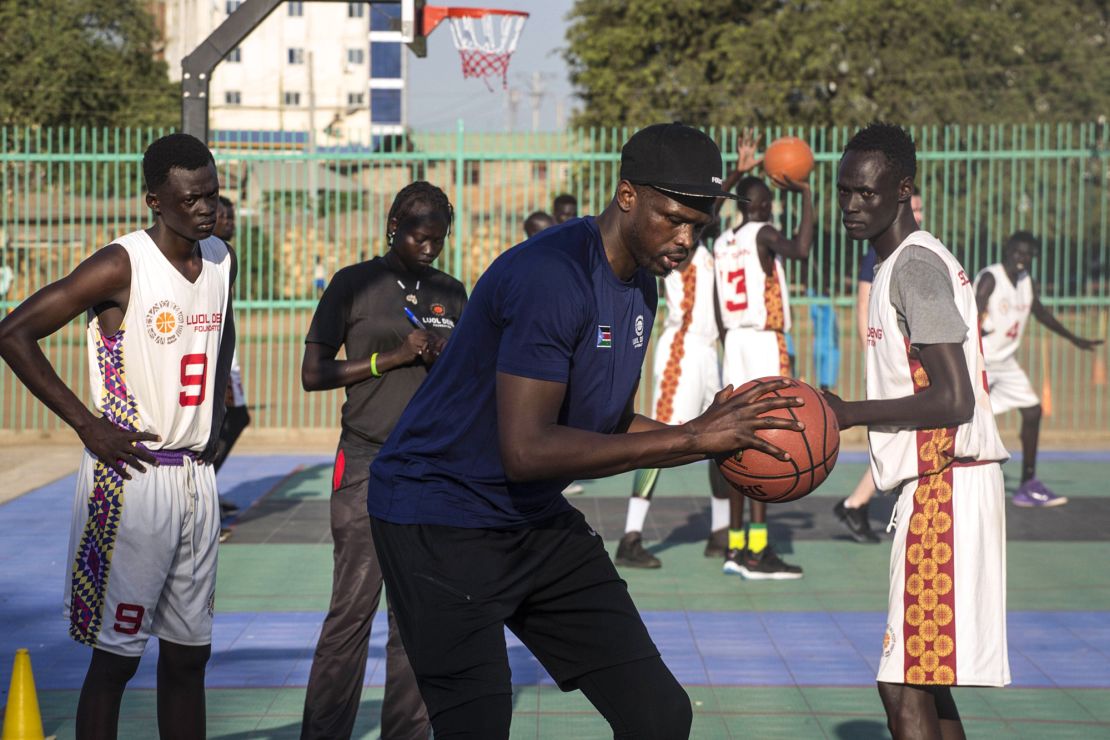
Bol’s son Bol Bol, JT Thor and Duop Reath are examples of players currently in the league with South Sudanese heritage, though the country has never truly been recognized as a force in international basketball. The sport is yet to truly take off in the country, which some players, such as Gabriel, have put down to insufficient resources.
“A lot of people play soccer who are maybe 6 foot 8 (inches) because of the availability where you can just go kick a soccer ball around and there’s not a court for X amount of miles,” said the 27-year-old.
“When I went back to South Sudan, to my village, I saw people that were 7 feet tall herding cows!”
The relatively small amount of people getting into basketball in the country does not mean that there is no interest in the sport.
“When we came back from the World Cup, we went back home, we had a parade, and we got to see people dancing in the rain, just a bunch of white teeth, big smiles, like everyone is happy,” Gabriel said. “Just the joy it brings to our country, it can’t be understated.”
“For us to continue to push forward and to wave our flag and give people something to be proud of is something that is really fulfilling for us all. And I’m happy that I get to be part of it.”
The mood among South Sudan supporters is jubilant as they prepare to watch their nation make history in Paris. After the tune-up game against Team USA last Saturday in London, fans celebrated, danced and waved the flag inside the O2 Arena, on the street and on public transport, despite watching their country suffer an agonizing 101-100 defeat.
It has all been about the journey for this nation.
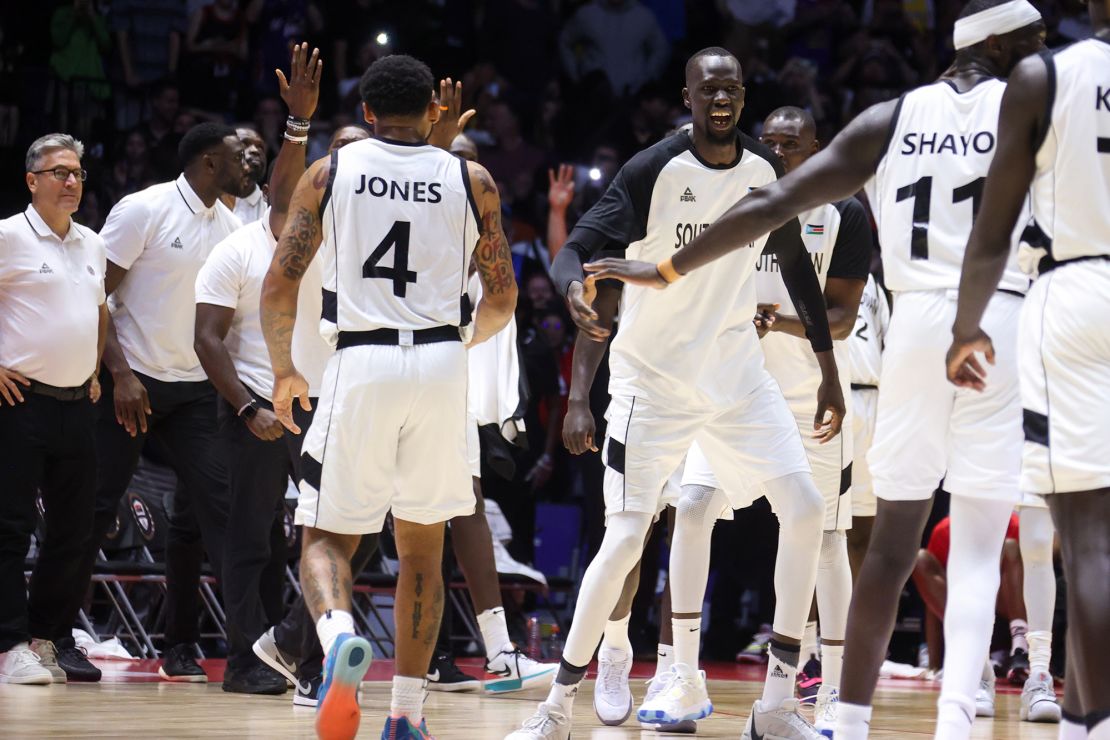
‘Bigger than basketball’
South Sudan recently held its first news conference ahead of a friendly match against Great Britain in London. Something that repeatedly came up was the notion that the Olympic campaign extends beyond just sport.
Putting the nation on the Olympic map and forging a path for the younger generation is at the core of the team.
“For all of us it’s a journey that’s bigger than basketball,” Deng said at the news conference. “Sports can elevate and motivate a nation.
“These guys know what’s more important is what they’re leaving behind.”
“We’re going out there to represent something that’s bigger than ourselves and that’s known at every single point that we’re out there,” Gabriel added.
South Sudan enters the Games bearing the additional responsibility of being the only African men’s basketball team to qualify – Nigeria qualified for the women’s competition. The continent has a rich history of producing NBA talent including MVP winners Hakeem Olajuwon from Nigeria and Joel Embiid, born in Cameroon but playing for Team USA.
The players spoke about the extra motivation, with Gabriel saying that the support the team has received from other African fans has “opened up my eyes to whole new basketball world.
“Even though other [African] teams might not be in the Olympics, they’re still maybe rooting for us,” he said. “So representing that, it shows even more continuity and gave us like a common goal.”
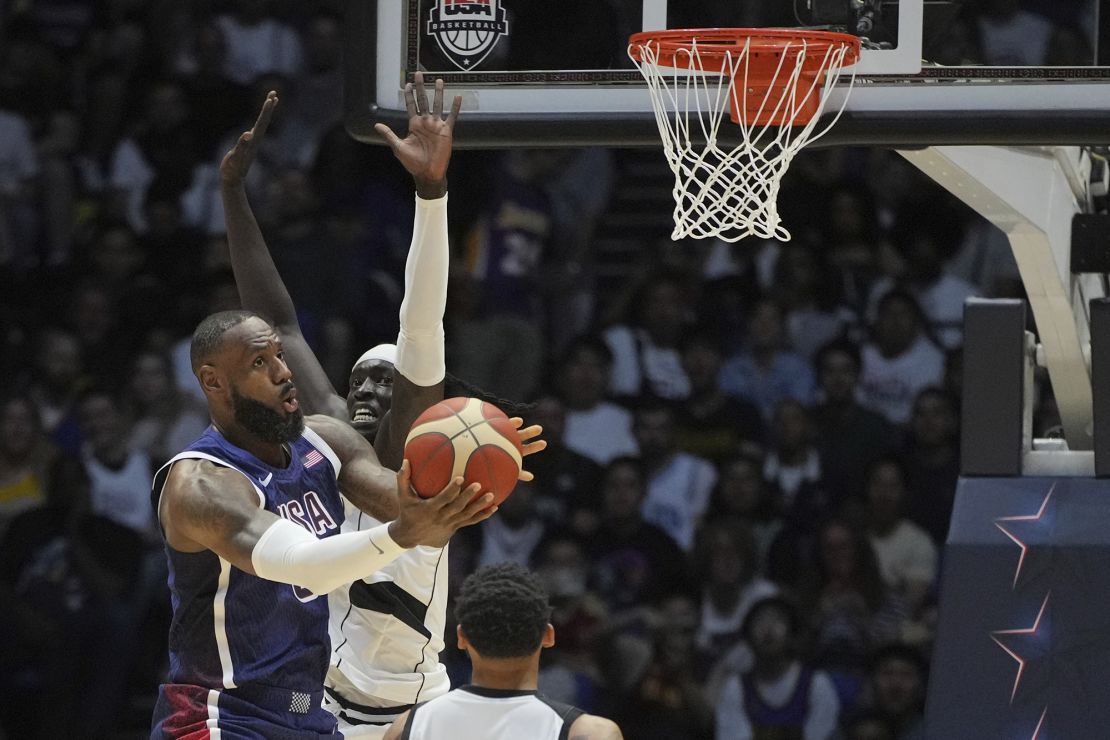
Deng has also spoken of the need to erase harmful stereotypes and perceptions of the country and players. He said on Instagram that he was “disappointed” at “ignorant remarks” made by former NBA All-Stars Paul Pierce and Gilbert Arenas about the squad, calling Arenas’ comments “disrespectful and cruel.” Pierce and Arenas have since apologized.
“Those who are easily misled may make comments that reflect self-hate more than pride.
There is nothing about our history that we should run away from,” he wrote.
History makers
It is worth remembering that South Sudan has been only been in existence for little more than a decade, while the basketball team did not play its first competitive fixture until 2017. Taking Team USA to the limit is a testament to how far the group has come.
Players and staff have attributed the team’s rapid rise to Deng, who served in various roles – such as player liaison and assistant coach – before becoming president of the federation.
“Luol is the driving force behind this all,” head coach Royal Ivey said at the news conference. “If there was no Luol Deng, we wouldn’t be sitting in front of you all today.”
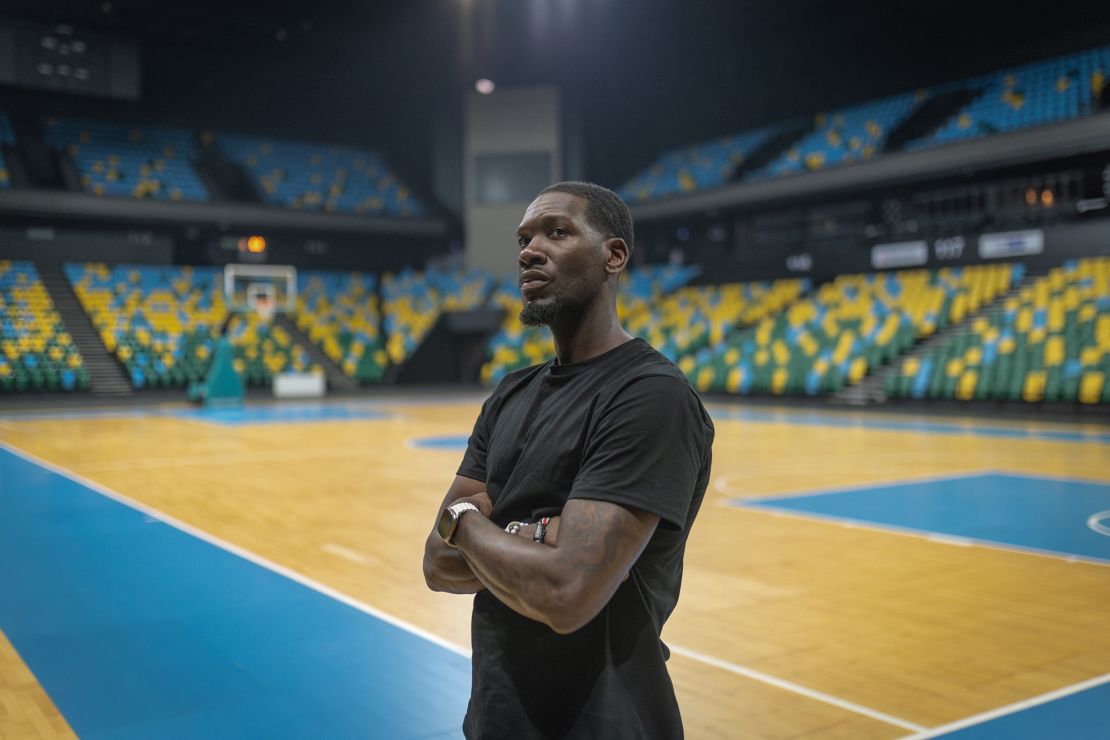
South Sudan is in Group C at the Olympics and will take on the USA in what is now a highly anticipated rematch. Serbia and Puerto Rico, each boasting NBA players and talent from all over the world, will be the Bright Stars’ other two opponents.
It will be a tall task for South Sudan to get out of the group stage but the players aren’t setting limits on what can be achieved, nor are they getting ahead of themselves, with Gabriel and Ivey putting an emphasis on “competing” in every game.
Whatever happens, though, this is a team that has already made history before even stepping on the court and that understands the significance that representation holds. For players like Gabriel, this is a “dream” that many thought would never come to fruition.
As he puts it: “To be able to compete with my country across my chest is the best thing I could have asked for.”

